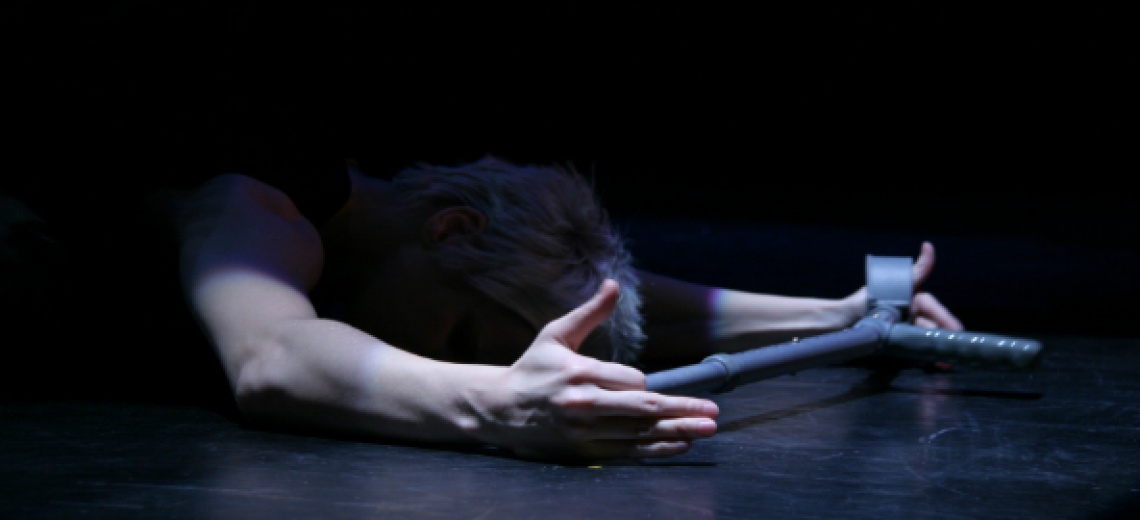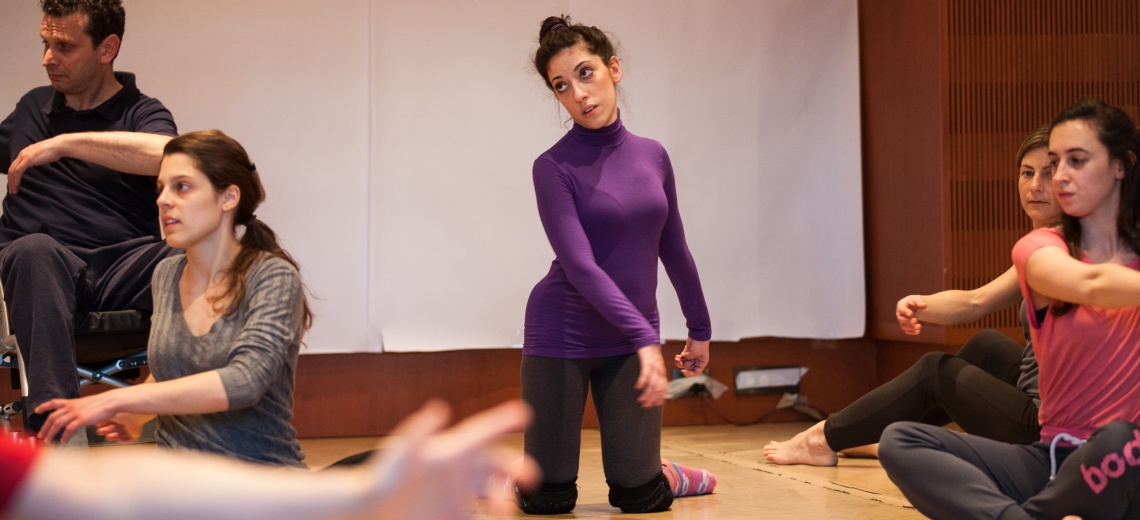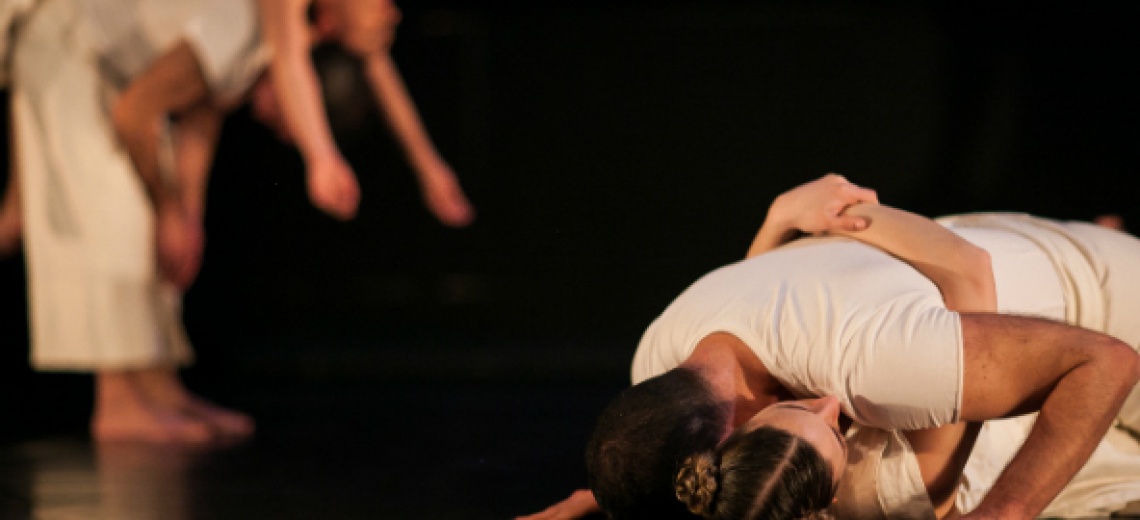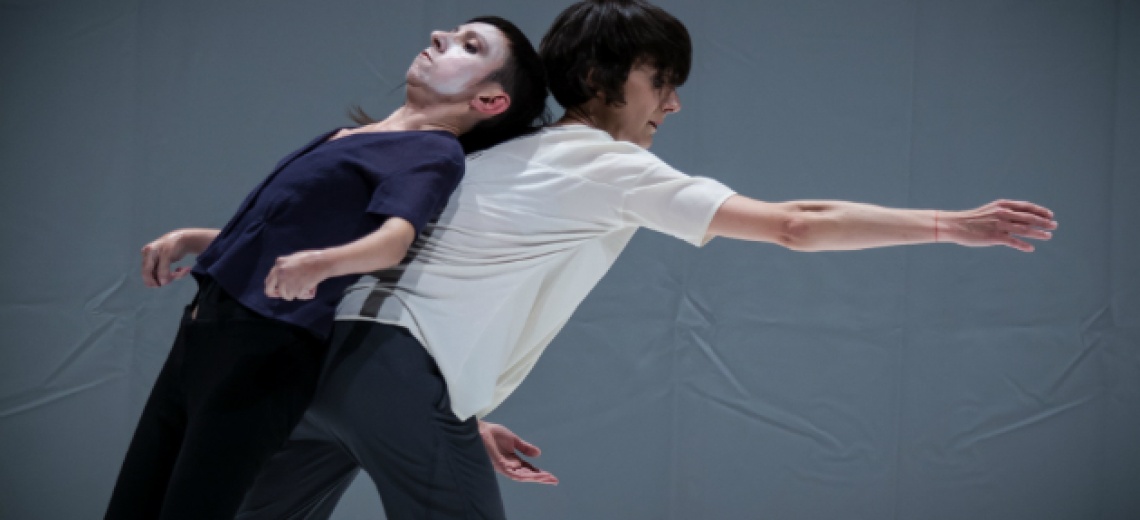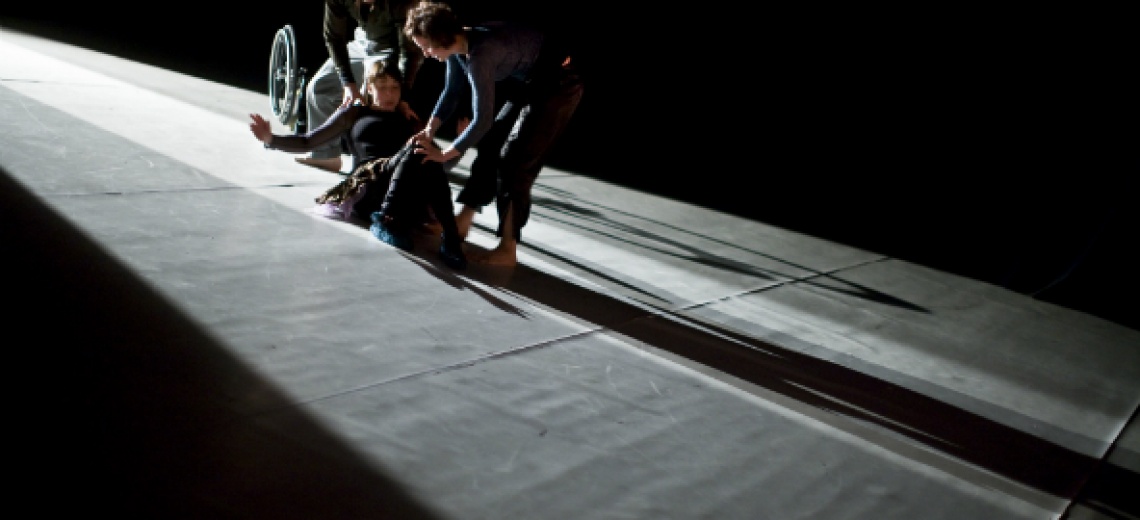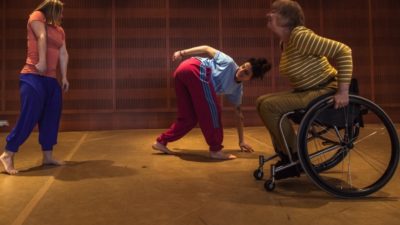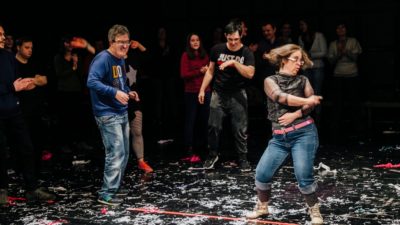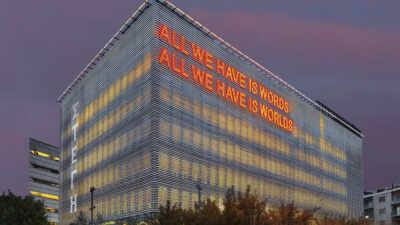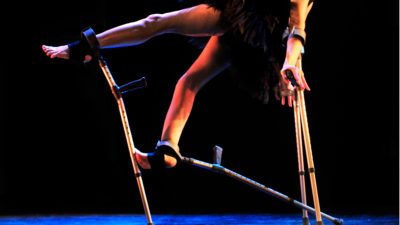As they prepare to host Greece’s first dance festival featuring disabled artists and companies from different countries in Europe, Christos Carras (Executive Director) and Myrto Lavda (Head of Educational Programs) reflect on a programme of work that has included access training for their staff and other culture professionals, the development of Greece’s first integrated dance groups, and the positioning of disabled artists and companies within a mainstream arts programme.
Issues relating to access, both physical and institutional are particularly important in Greece, a country where informal and family networks often bear the brunt of responsibilities that the state has not managed or tried sufficiently to come to terms with. During recent years, which have seen public funding and infrastructure become even less reliable, these issues have been exacerbated. This period has seen private institutions, such as the Onassis Cultural Centre, financed by the Alexander S. Onassis Public Benefit Foundation, take a prominent and visible role within the sectors in which they are active, in our instance contemporary culture.
This increased presence obliges you to reflect upon your position and responsibility as a cultural agent: what kind of institution are you and how do you interact with the society in which you operate? What exactly can you do about issues you identify as pressing? At what levels can you make a difference? As is often the case, it is useful to start this questioning at the smallest level and move up; as the saying goes, the first step (and by no means the easiest) towards changing the world is to change yourself.
Engaging in a project like Unlimited Access obliges you to take stock of how you score on issues of access: the space may comply with legislation, but how accessible is it really? The staff may be really friendly and caring (ours is!), but how well trained are they in welcoming disabled people to the Centre? We may be committed to reaching out to the broadest possible audience through our communication and media, but to what degree do we cater to the needs of visually impaired or learning disabled audiences? Honest answers to the above will lead to a full agenda of actions to implement for almost any institution. It is an ongoing process but we have already made modifications to the building and started a series of targeted staff training programs.
Going a step further: what cultural services do you provide for disabled people and how?
Two fundamental guidelines support our thinking and practice at this level:
- If one of the main issues is segregation, then focusing on integrated workshops and other activities that bring together groups (children or adults) including both disabled and non-disabled people is essential to breaking down the barriers of apprehension and incomprehension that pervade their relationships.
Try to avoid thematic or aesthetic patronizing that, at the end of the day, is another form of discrimination. The programs that are designed for integrated groups, whilst not feigning not to see differences, should never be simplistic or condescending: the aesthetic and technical goals should be of the same standard as the organization applies across the range of its actions.
- Following on from this, the need to bring disabled arts into the “mainstream” of contemporary culture should be constantly reasserted. To what degree do you integrate productions and performances related to disability into the central focus of your programming? Or on the contrary, to what degree do they represent something “extra”?
The questions posed by disabled arts, the different narratives, the challenges to our conceptions of body and agency are indeed special, but relegating them to a “special” section of the program can lead to marginalizing their relevance and significance. At the OCC world class productions such as Ganesh versus the Third Reich (Back to Back Theatre co.) or Disabled Theatre (Jérôme Bel / Theatre Hora) as well as many workshops for people of all ages are part of our core program.
And how can you engage in the public discussion about disability issues?
As a cultural centre you develop media for reaching out to your public. By bringing the practices of disabled artists into the stream of information, you can certainly raise awareness, in both a positive and critical mode. Apart from the performative dimension, it is possible to integrate public discussions and other actions that focus on disability issues. And in one sense, by virtue of not being a “specialist” institution, you can play an important role as a mainstream forum that brings issues out of the often antagonistic and sometimes introverted environment of agencies and representative bodies and into the mainstream.
A cultural centre can not remedy the challenges faced by disabled people at all levels of their lives, nor indeed effect change at all levels of society, but as we have discovered through our engagement both with other organisations and above all with the extraordinarily inspiring people from the disabled communities that we work with, consciously approaching these problems within your own scope of work is already a tremendously challenging, important and rewarding step.
The Onassis Cultural Centre opened in Athens in December 2010 and is a modern cultural space hosting events and actions across the whole spectrum of the arts : from theatre, dance, music and the visual arts to the written word, with an emphasis on contemporary cultural expression, on supporting Greek artists, on cultivating international collaborations and on educating children and people of all ages through life-long learning.


